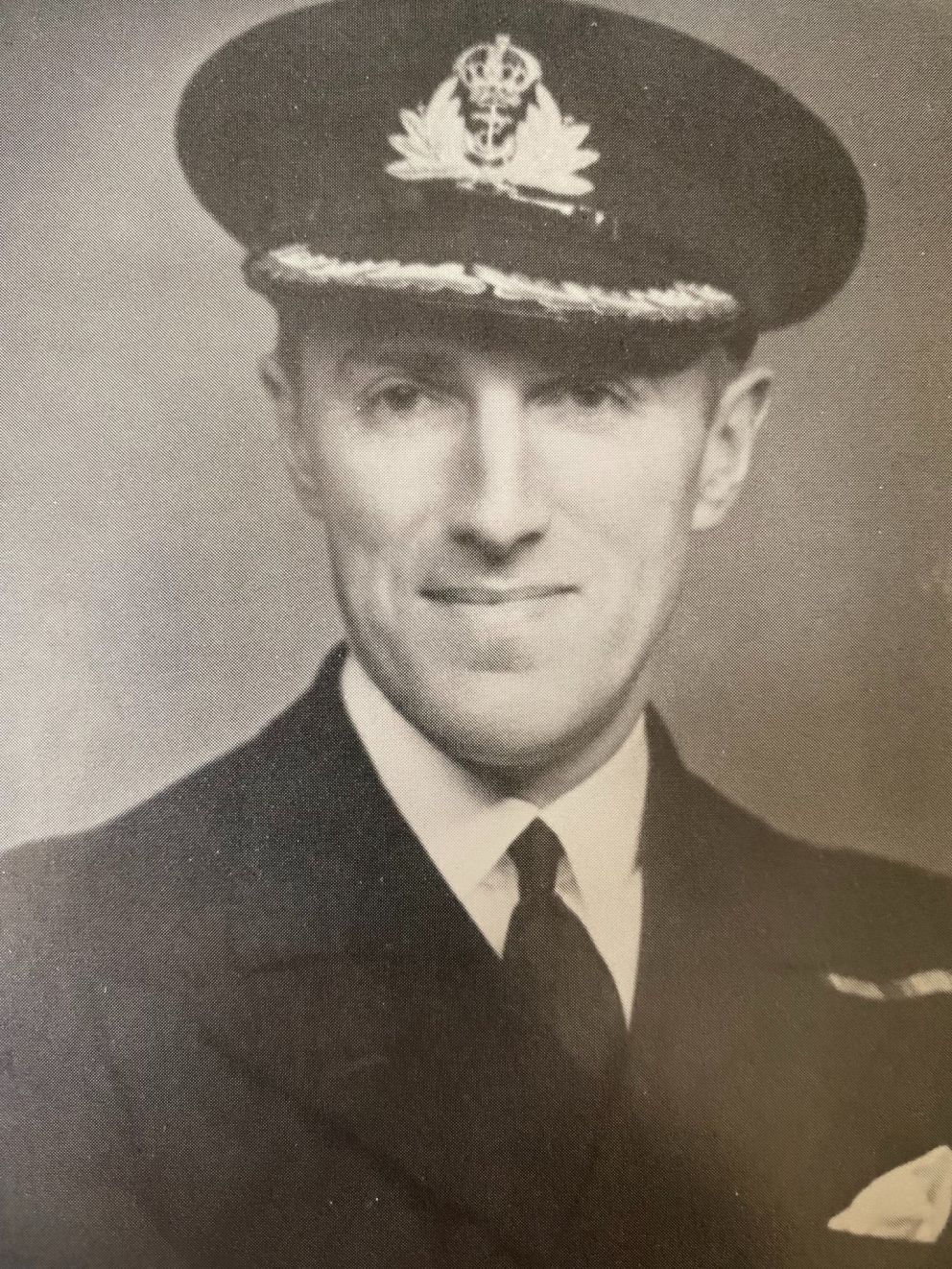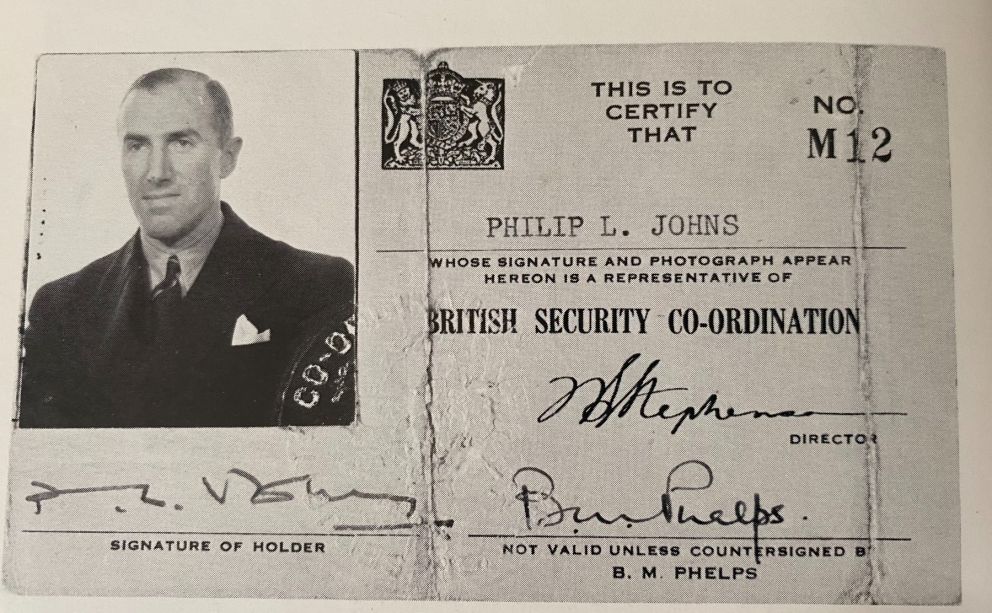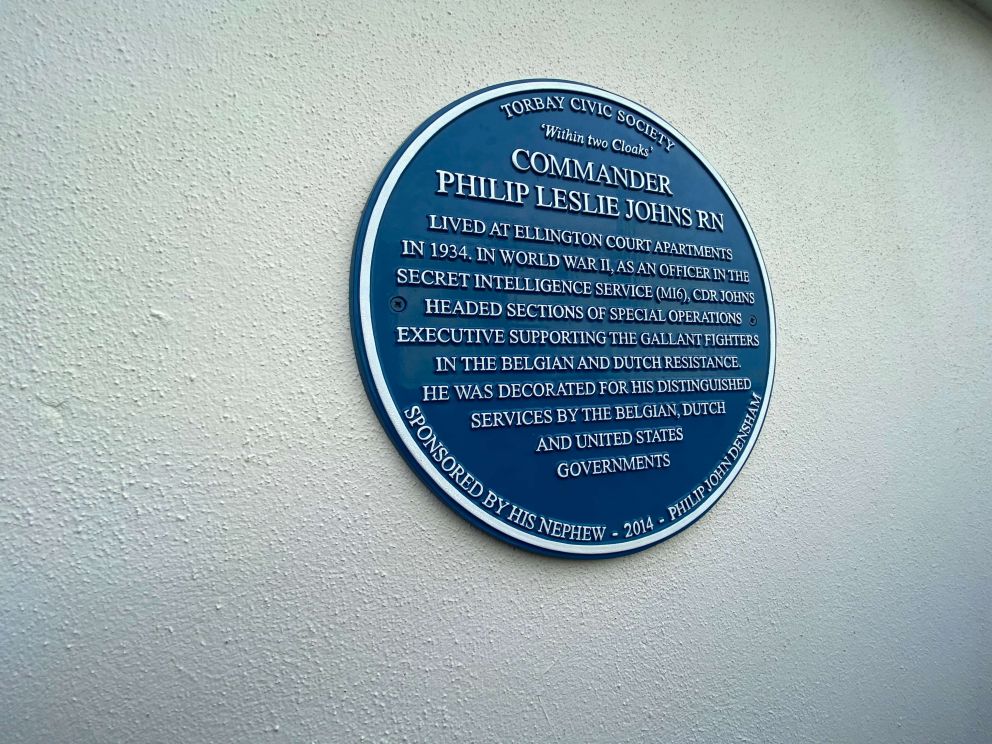Philip Leslie Johns was born in 1900 and entered service with the Royal Navy in 1917 during World War 1. At the outbreak of war in 1939 he was still a Naval Officer and was living in Belgium from which he had to escape as the Nazi invasion took control of the country.
Upon his return to London he was recruited into The Secret Intelligence Service (SIS which was Britain's spy service at the time. Recruitment came about informally and membership of the service tended to be restricted to those who had gone to Eton or Harrow or Oxford and Cambridge and also Sandhurst. It was during this time that he became friends with Ian Flemming who was of course the writer behind Britain's greatest ever fictional spy James Bond.
His espionage postings during the war sometimes took him a long way from the theatre of conflict. For example, he had a posting in Portugal which although at the time idylic compared to war ravaged London nevertheless had massive strategic importance in that the Germans wanted access to Atlantic ports in order to make it easier to destroy British supply convoys. It was also a key stopping off point for those who had escaped Nazi occupied Europe and for infliltrators and counter agents unleashed by the Germans. Portugal (like Spain were officially neutral in the war BUT had many Nazi sympathisers across society and so espionage was fraught with difficulty as the SIS did not want to provoke Salazar or Portugal or General Franco of Spain into closer relationships with Germany.
After Portugal, Johns was then sent on a mission to Argentina with the idea that he could procure for the British additional shipping to replace that which was lost in the Atlantic convoys. Several months of frustrating negotiations ensued before the whole scheme was abandoned and Johns was recalled to London.
Back in London, he joined the Special Operations Executive (SOE) which was set up by Winston Churchill "to set Europe ablaze". The plan was to encourage resistance in occupied territories particularly with sabotage, to collect details about German military movements and to prepare for an uprising after the D Day Landings. Agents were routinely dropped into the occupied territories and many of them were women. Johns was put in charge of the Belgian section and then later the Dutch section. Counter espionage from the Nazis meant that losses of agents and resistance fighters were high. The whole thing was further complicated by the myriad of resistance groups who had competing and contradictory aims for the post was World.
As the war began to draw to a conclusion Johns went to Belgium and Holland and took charge of intelligence matters on the ground also seeing at first hand the ravages of war including the horrors of the newly liberated Buchenwald Concentration Camp in Germany itself.
After the war he returned to civilian life and a career in business. He emigrated to Florida in America and wrote is autobiography there in 1979. He was one of the very first SIS people ever to do so.



.png)
